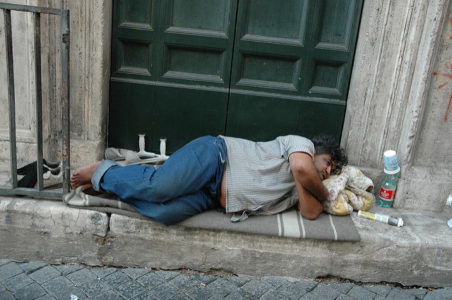By Ben Kerrigan-
In a significant move to tackle rough sleeping and enhance public safety, the government has announced new measures through amendments to the Criminal Justice Bill.
These measures aim to ensure that rough sleepers are directed to the support they need, such as shelter or addiction treatment, before any criminal sanctions are considered.
The new guidance mandates that police and local authorities prioritize connecting rough sleepers with support services.
This includes guiding individuals to health services or shelters. However, if individuals continue to engage in antisocial behaviour, such as causing damage or harassment, despite being warned, they will be issued a rough sleeping notice, requiring them to cease the behaviour or move on.
Home Secretary James Cleverly emphasized the government’s commitment to ending rough sleeping through a multifaceted approach.
“This government is committed to ending rough sleeping.
‘In order to achieve this, we must take a multi-faceted approach that supports vulnerable people off the streets and ensures everyone can feel safe in our neighbourhoods and communities,” Cleverly stated.
He highlighted that the new measures will replace the outdated Vagrancy Act with a focus on support while maintaining the ability to address public safety concerns.
Policing Minister Chris Philp echoed this sentiment, stating that ending rough sleeping is a top priority for the government, backed by a substantial £2.4 billion investment.
“Nobody should be criminalised for having nowhere to live, but as we have always said, we will not accept behaviour that is antisocial or intimidating to the public,” Philp remarked.
He also thanked MPs Bob Blackman and Nickie Aiken for their cooperation on this issue, ensuring the proposals are proportionate and targeted.
The repeal of the Vagrancy Act 1824, which criminalised rough sleeping, is a cornerstone of the new bill. This move aims to decriminalize rough sleeping while still addressing antisocial or intimidating behaviour.
Under the new bill, individuals causing such behaviour could be served with a notice to stop or move on, and ignoring this notice could lead to further legal actions, such as court orders requiring attendance at drug treatment programs.
Additionally, the bill will remove references to odours, clarifying that previous references to ‘smells’ were intended to address rubbish or human waste, not to criminalize individuals for not being able to wash.
This legislative change is part of the government’s broader effort to combat homelessness and end rough sleeping, supported by a £2.4 billion investment over three years. Since 2018, more than 740,000 households have been prevented from becoming homeless or have been supported into settled accommodation.
The new rough sleeping and nuisance begging provisions, along with the repeal of the Vagrancy Act, will come into effect three months after the Criminal Justice Bill receives royal assent.
This transition period will allow local authorities and police to collaborate with communities and charities to effectively implement the new measures.
These efforts signify a robust and compassionate approach to addressing rough sleeping, aiming to provide support to vulnerable individuals while maintaining public safety and community well-being.




